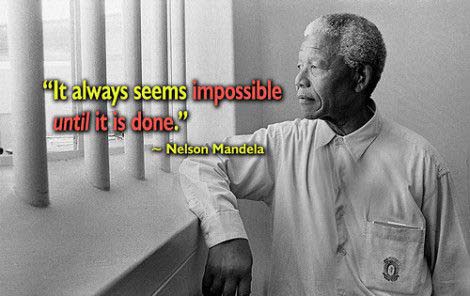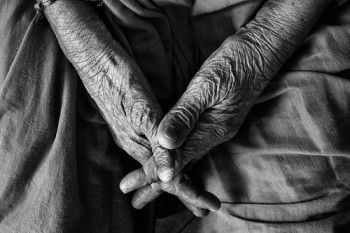Mandela, Hope & Lasting Help for Depression

Lasting help for depression is closely tied to hope, and symbols of hope are among our greatest treasures.

This week saw the passing of Nelson Mandela, who was an incredible symbol of hope for much of the human race. The unbelievable intensity of the gratitude to Mandela as a figure of reconciliation is a living testament of the power and vital necessity of hope for the human psyche.
Real Hope Is Not A Pep Talk
The world is full of voices telling us that positive thinking can create life-changing results such as increased wealth, health, and happiness. Such messages abound. But are they really sustaining?
Nelsen Mandela spent 27 years in prison on Robben Island and elsewhere. Viktor Frankl, the famous existential psychiatrist endured the Dachau camp while virtually all of his family were murdered at Auschwitz. Can we possibly think that mere positive thinking and the “law of attraction” allowed such individuals to endure? Here is something much deeper in the person than mere positive thinking, or indeed, than thinking at all.
The Tune Without the Words
Dickenson’s words point us toward the true nature of hope, as that which “perches in the soul”, beyond the reach of reasoning, beyond the reach of language. But if we are to experience help for depression from hope of this deep type, which comes from our depths — we have to know our own soul.
Experience
In Jung’s words, hope is one of
…[those] highest achievements of human endeavour… [which] are neither to be taught nor learned, neither given nor taken, neither withheld nor earned, since they come through experience…. Experiences cannot be made. They happen — yet fortunately… we can draw closer to them….
The way to experience… is anything but a clever trick: it is rather a venture which requires us to commit ourselves with our whole being.
Jung urges us to find hope by drawing closer to, and accepting our fundamental experiences, and, with them, our own nature and identity.

Often the roots of depression can be found in our inability to accept our own experience, and our true selves. Whether in childhood, or later life, the individual may internalize the message that his or her experience is unimportant, and that, in fact, he or she is really not important. Such experience can lead to the death of hope.
Conversely genuine self acceptance is linked to the individual fostering basic trust in his or her life, to hope, and to our awareness of the existence of possibility. As the Danish philosopher Kierkegaard put it:
If I were to wish for anything, I should not wish for wealth and power, but for the passionate sense of the potential, for the eye which, ever young and ardent, sees the possible.
Pleasure disappoints, possibility never. And what wine is so sparkling, what so fragrant, what so intoxicating… as possibility!
Hope and Lasting Help for Depression

From a Jungian perspective, individual /a-midlife-transition assists in the recovery of the natural and instinctive self, which is the natural source of our most basic sense of hope. The journey of individual therapy toward this hope can be fundamental in bringing lasting help for depression.
[cta]
